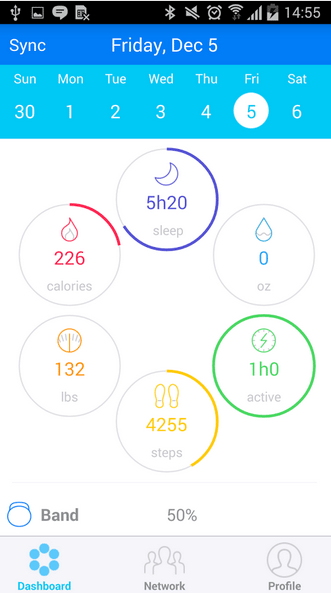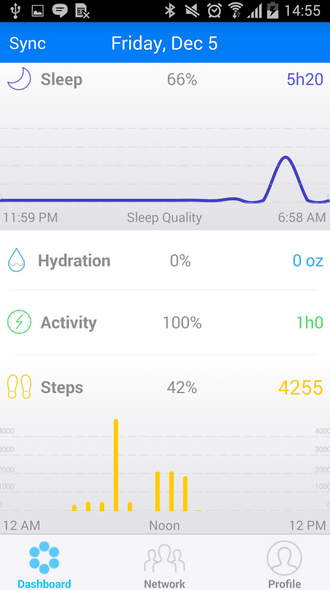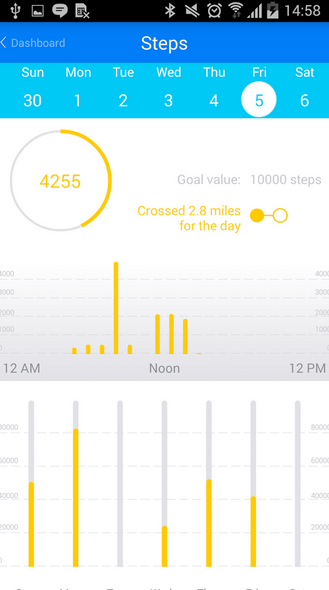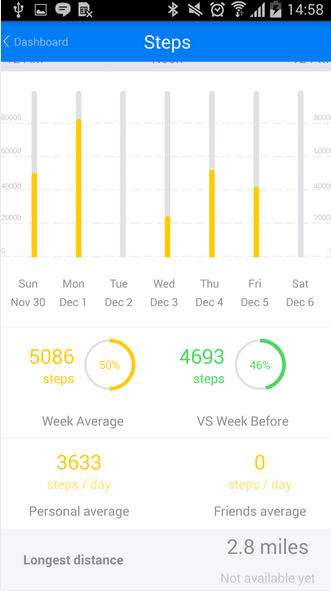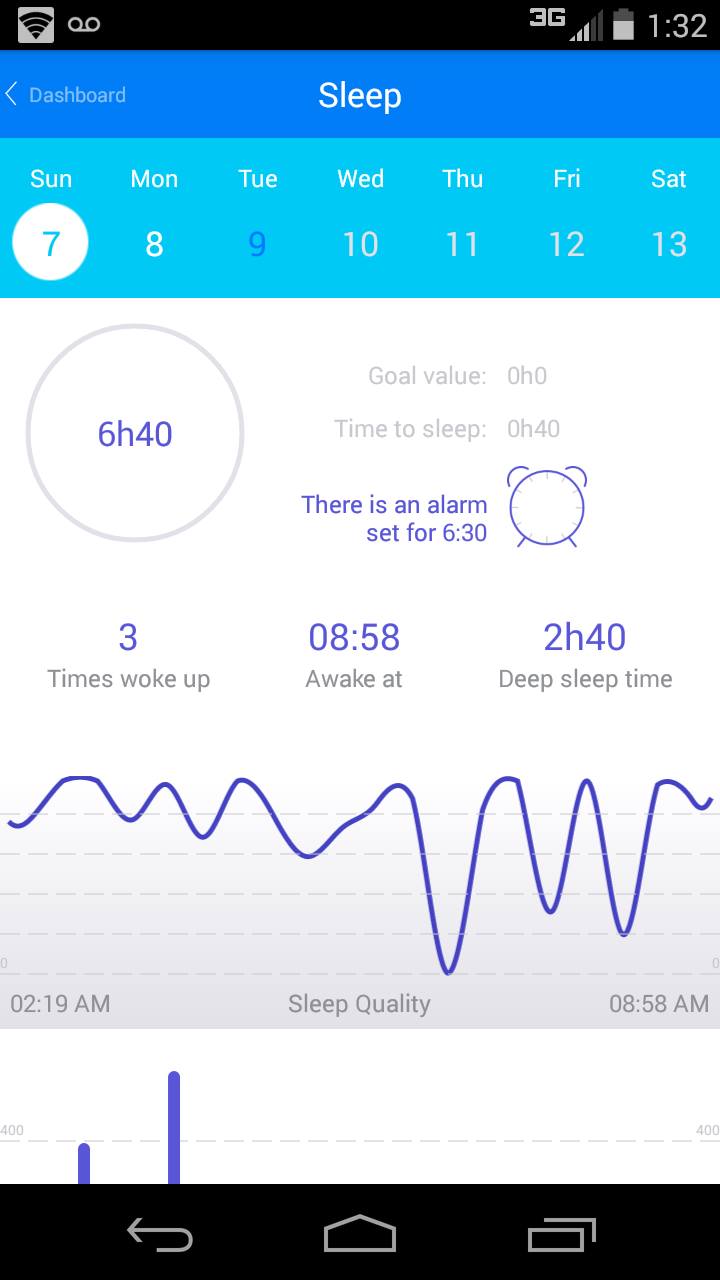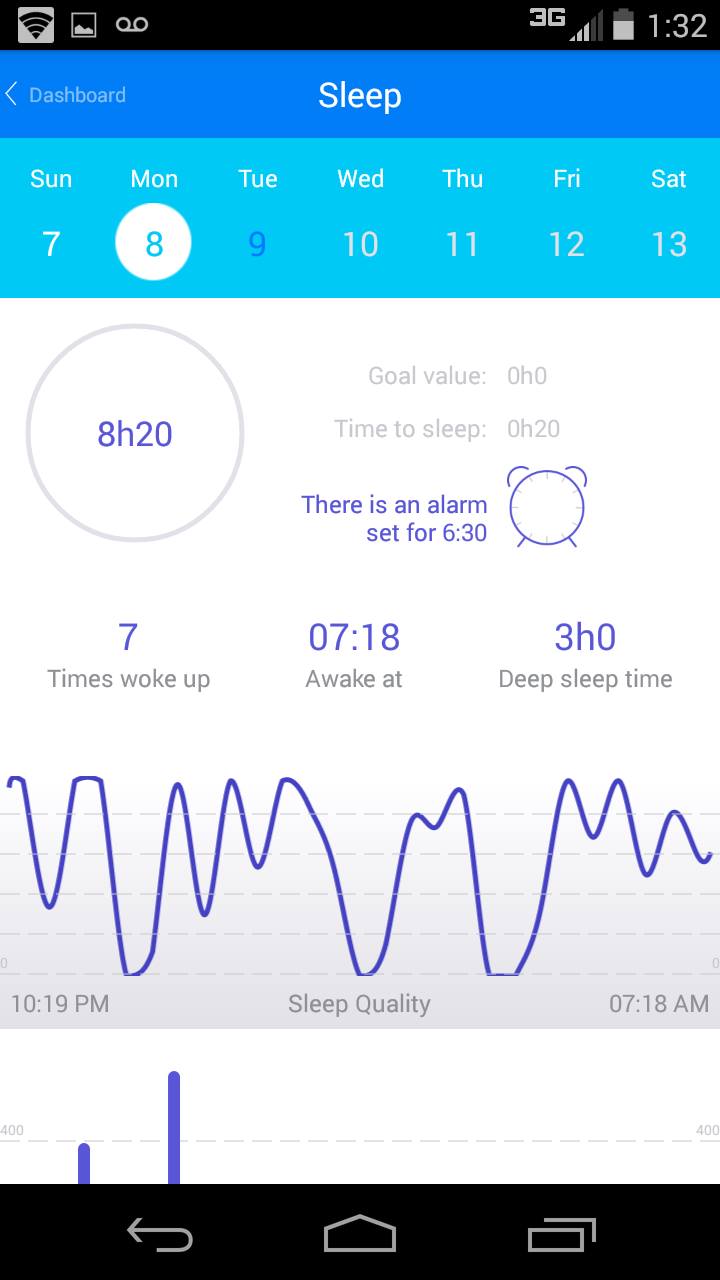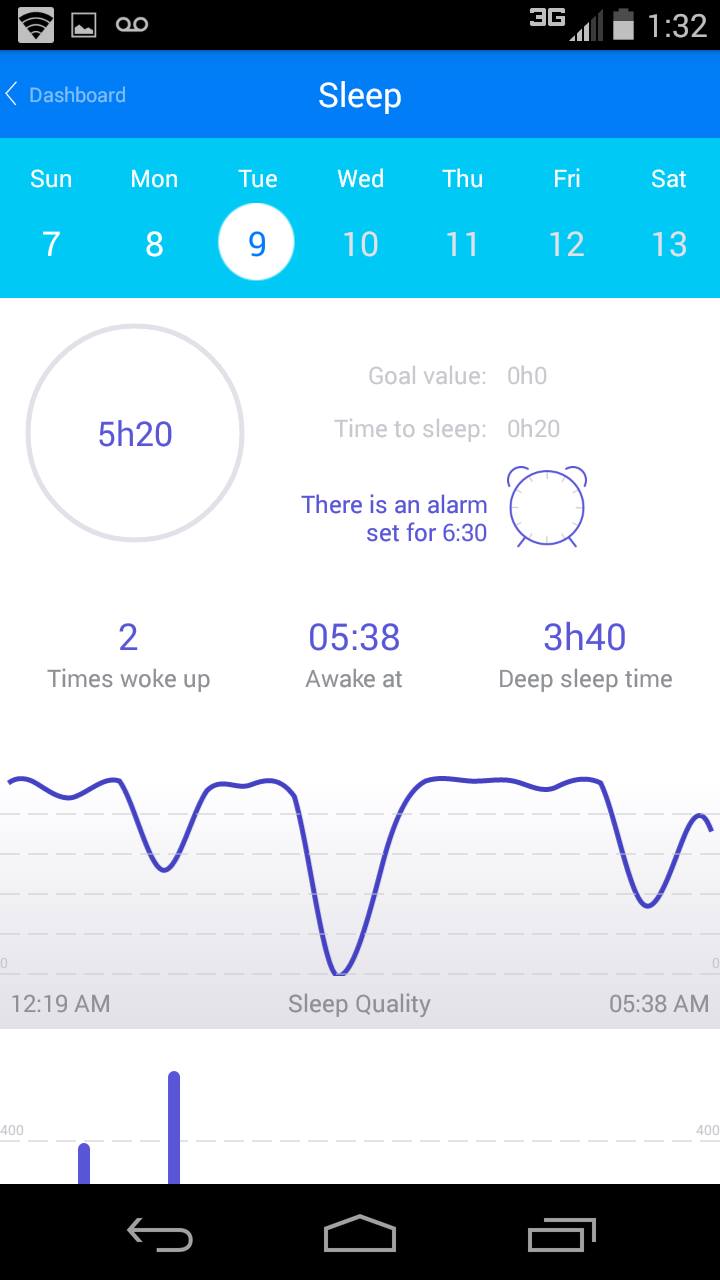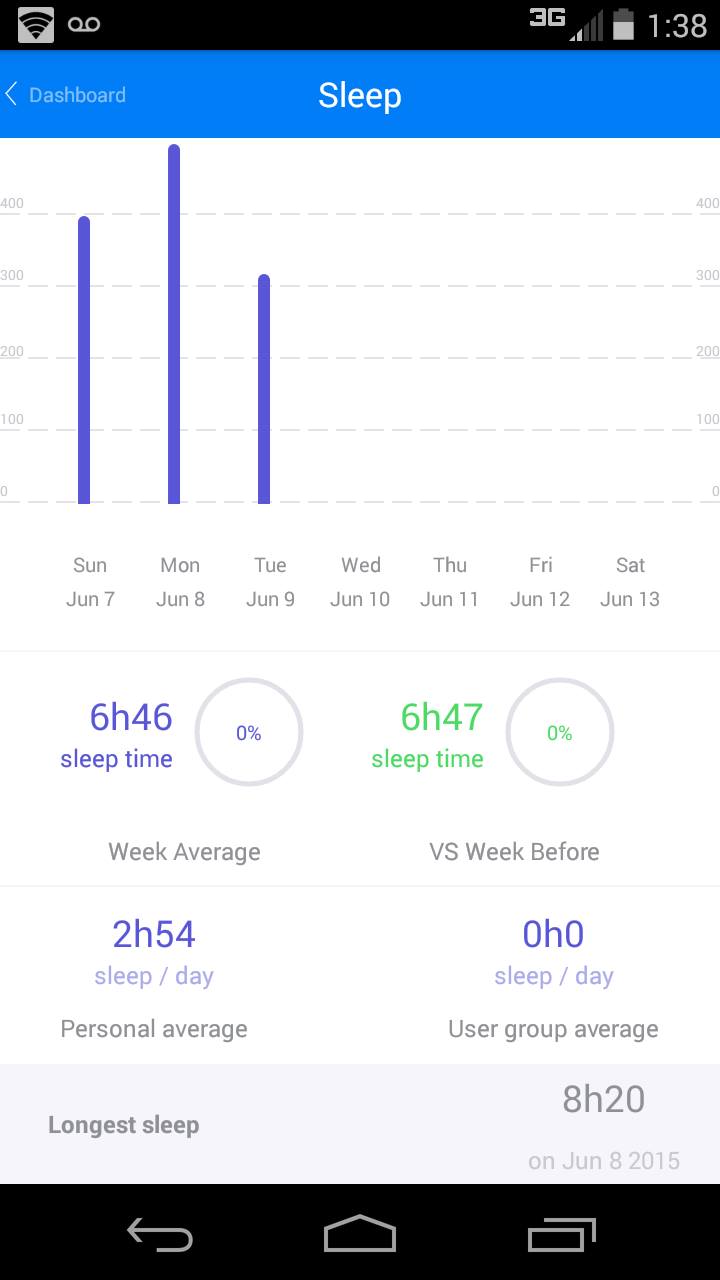Pivotal Tracker 1 (2nd Gen) fitness tracker review
We all know the big names in fitness and sleep trackers. Just about everywhere you look you can find someone wearing a Jawbone wristband or a FitBit tracker. Those trackers are on the pricier side of things, however, and not everyone is willing to spend that much on tech that might — like their last gym membership — end up going unused. Enter the budget tracker market where Xiaomi's Mi Band largely goes unchallenged. Late last year a company called Pivotal Living based out of Seattle, Washington introduced an even more budget-friendly option, at least for the short term: its Pivotal Tracker 1 wearable, which is free if you sign up for a year's membership at $12.
The deal was too good for many to pass up, and Pivotal was slammed with sign-ups, so much so that its servers had trouble dealing with it all. Users experienced trouble syncing their device and more, and an issue with the hardware compounded the problem by causing the wearable to shutdown when exposed to static electricity. It turned into a big mess for the company, and that original tracker has only managed to crawl to a 2-star rating on Amazon (arising from its previous single star).
Pivotal recently launched a second-generation version of the band, one promised to have better quality, and they called it simply the Pivotal Tracker 1 2nd-Gen. Half a year has passed since the company's big flop, and one would be fair in giving Pivotal Living a second shot. Have all the issues been worked out, though, or is this latest wearable more of the same? Read our review to find out!

The Pivotal Tracker 1 has been updated from its original iteration, and this second-generation version brings with it the promise of better build quality (something that was a big complaint with the first generation), as well as improvements to the mobile app. The end result is a cheap tracker that does not feel cheap, and that's a good thing.
The design is similar to what you get with the Microsoft Band, though it's not quite as rigid. The similarities mostly end there, at least as far as design goes. While the Band has a quality display, the Pivotal Tracker 1 has an inconsequential and impossible-to-see-outdoors OLED display. This is, of all things, one of the tracker's biggest weak points. It is fair to point out, though, that the OLED display is a better alternative than the Xiaomi Mi Band's three LED indicators, though it has the same price.
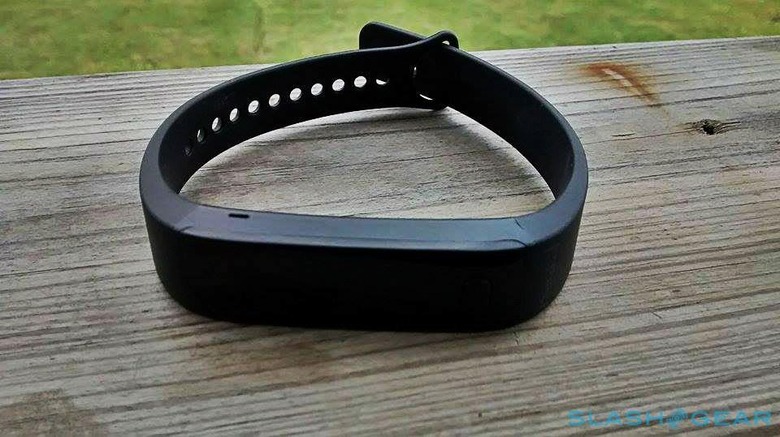
The tracker itself is very comfortable to wear. A pair of studs in the band press into the related holes on the other end of the band, fixing it in place. It has generous sizing options, so unless you've an atypically small or large wrist, it should fit fine.
All in all, the design is very attractive, and when comparing the tracker — visually, at least, and by feel — to other big-name offerings, it in no way feels like something that costs a few dollars more than your monthly Netflix subscription. That's a good thing, though. The tracker is similar enough to competing models that if you don't like it, you'll know trackers aren't for you and you'll be out less than twenty bucks.
Features
The Pivotal Tracker 1 features a small OLED display that provides snippets of information, such as the number of steps you've walked for the day, battery life, and the current time. There's a single button on the display for toggling between screens. The design is described as unisex, which is accurate. The band is soft and the clasp is made of a brushed alloy. It has, says the maker, a "3-Axis sensor" (it appears to be an accelerometer), and a rechargeable battery that only takes an hour or so to charge (the charing cable is proprietary, so don't lose it).

Setup
Setting up the wearable is as straight forward as the slides below show: charge it, turn it on, and press the button so the Bluetooth icon shows up. The app will search and find it, and automatically take the user to the registration page.
The App
The brunt of the features lie in the mobile app, which is surprisingly robust in terms of features. If you've used other fitness trackers, you'll be familiar with the mobile offering from the start. It is available for Android 4.3 and higher, and iOS 8 and higher. There's the standard data aggregation such as showing the number of steps you've taken in a day and a graph plotting out the frequency of those steps during certain blocks of time (whether you've taken more in the afternoon than evening, for example). It'll also show the estimated number of calories you've burned based on those steps (there's no heart rate monitor, so that's the extent of the calorie counting), your weight, and hydration levels.
The app takes it a bit farther, still, with more advanced functionality like the ability to create goals and monitor the progress toward them. Likewise, users can create Teams so that others with the tracker can participate in some joint activity or fitness challenge. In addition, the mobile app uses sensor data from the smartphone itself to "reconcile the data returned from" the wearable, doing so frequently to — hopefully — improve the accuracy.
Finally, there's sleep tracking, which is the same as the sleep tracking offered by other trackers; it monitors when you're asleep, the movements you make during your sleep, and when you wake up, collecting the data to show patterns over long periods of time. Users are also able to turn on an alarm that causes the wearable to vibrate for a less-than-startling alarm in the morning.
The Pros
The first Pivotal Tracker 1 received a lot of hate, and it deserved most of it. The product, by all accounts, wasn't ready to ship out and though the price point was very low, customers grew quickly frustrated. The second generation is not perfect, and we'll cover why in the next section. There is, however, a lot to like about it:
• The band is cheap and comfortable; you'll forget you're wearing it
• The app has many features, including goals and teams
• Battery lasts nearly a week on a single charge
• Zero issues with it shutting off like the 1st gen experienced
• OLED display is convenient, simple with single-button function
The wearable is lightweight and you'll forget you're wearing it. Though you won't get notifications from it on from your phone, it is easy to see your current progress without pulling out your handset, as well as the time (don't expect it to be visible in direct sunlight, though).

The Cons
Unfortunately, the band was not without its problems. When I tried to sign up, the app kept giving me errors when trying to register an account, then when trying to connect to Bluetooth. It eventually worked, but then at times syncing was a similar problem — I'd try to sync the band and it would not work, and I'd have to try two or three times before it would work. Once it did work, the band functioned as it should — never restarted on its own, the battery lasted five or so days like promised, and it could hold a couple days of data. Still, there are some cons:
• Steps aren't registered accurately
• App is buggy and sometimes syncing takes several tries
• Had trouble signing up; took five tries, multiple system errors
• Display isn't visible in sunlight
• Band isn't waterproof
• No support for other fitness apps

The problems are infrequent and minor enough at this point that they can be tolerated, and mostly ignored — $12 is really cheap for a fitness and sleep tracker, even one with some bugs. The steps, though, are a bigger problem: they are not accurately tracked, and so while over time you can see step trends (times of the day with higher registered numbers and day with lower numbers), you won't know the accurate number of steps you've taken. Walking 18 steps across the room might register as 32 steps. Likewise, driving is registered as steps if you wear the tracker while steering.
So, if you need an accurate step counter rather than a general idea of your patterns over time, the Pivotal Tracker 1 is definitely not a good choice.
Sleep tracking
If you're more interested in a wearable tracker for sleep pattern tracking and for the silent alarm functionality (vibrating on your wrist) rather than the fitness tracking, the Pivotal Tracker 1's usefulness jumps quite a bit. The sleep tracking feature on the app is akin to what you get with other sleep trackers, and the resulting data seems far more accurate than the step counting data.
The app records your sleep pattern in the form of a graph, as well as the time you go to sleep and the time you wake up and how many hours you spent in a deep sleep. Another welcomed feature is the "Alarm" feature, allowing users to set an alarm for for each day or a blanket alarm for the entire week. When the alarm goes off, the wearable will vibrate gently rather than making a shrill sound — a far more pleasant way to be woken up, one that won't disturb anyone nearby.
Conclusion
The Pivotal Tracker 1 (2nd gen) is an improvement over the previous version, and for users who are willing to tolerate a buggy app it could be a good starting point. Some features are missing that you'll find on competing models, a necessity to hit the small $12 price. There's also the annual membership fee, which some may not like but that is small enough to be inconsequential for many.
The tracker does not feel cheap, and it appears the issue with rebooting has been corrected. The battery life is excellent, and the inclusion of an OLED display comes in handy more often than one might think. Step counting isn't very accurate if the wrist band is on your wrist (put it in a pocket to improve its accuracy), but the sleep tracking functionality is on par with other trackers.
Overall, if you're in the market for a fitness and sleep tracker and you don't want to spend very much, it's worth giving the Pivotal Tracker 1 a shot. Price is $12 from Pivotal and $15 from Amazon.











